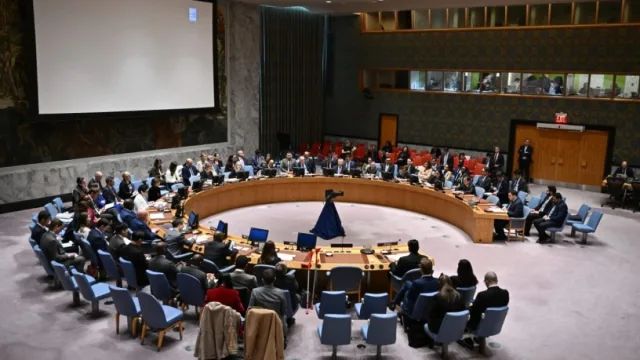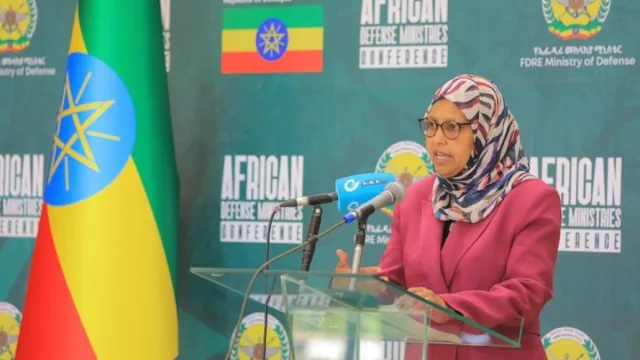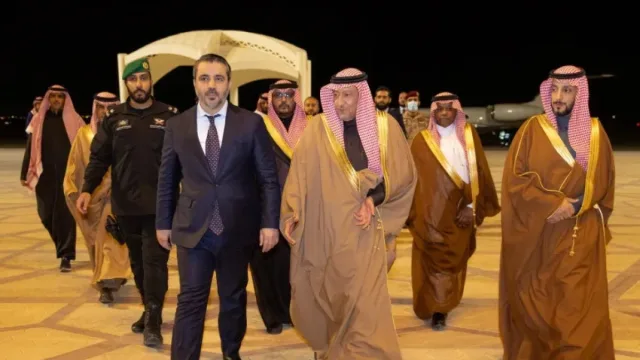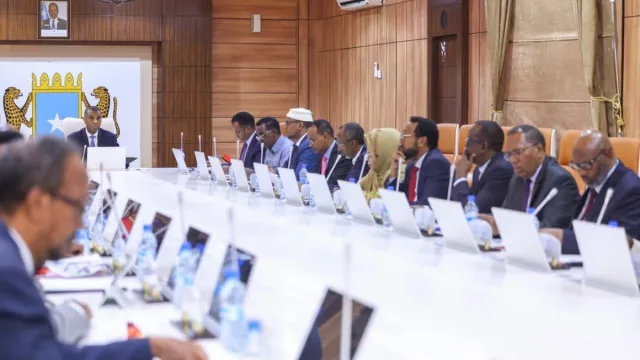Somalia’s transport minister on Tuesday said that an employee at the country’s civil aviation office aided…
 Somalia’s transport minister on Tuesday said that an employee at the country’s civil aviation office aided the bombing of a Djibouti-bound plane last week, reinforcing concern among security experts that insider attacks are among the biggest threats to commercial flights.
Somalia’s transport minister on Tuesday said that an employee at the country’s civil aviation office aided the bombing of a Djibouti-bound plane last week, reinforcing concern among security experts that insider attacks are among the biggest threats to commercial flights.
For years aviation security upgrades have focused on reducing the risk of passengers smuggling an explosive onboard, adding layers of bag and passenger screening. But security experts worry that employees of foreign and U.S. airports, who undergo fewer checks, could in fact pose the biggest threats to a bomb being brought onto a plane.
Somali authorities suspect Abdullahi Abdisalam Borle, 55, was handed a laptop containing an explosive by two people dressed as airport workers. The handover took place after Mr. Borle had cleared security checks at the Mogadishu airport from where the Daallo Airlines flight departed.
The explosive detonated soon after takeoff, rupturing the fuselage of the Airbus Group SE A321 plane and killing Mr. Borle. The plane returned to the Somali capital with two other passengers injured.
Surveillance footage released by Somali officials over the weekend purports to show two men walking together through the airport terminal. One of the men takes an item from under his arm and passes it to a third man, walking in the opposite direction.

Somalia’s minister for transport and aviation, Ali Jama Jangali, Tuesday said that one of the men shown in the security camera footage was an airport employee who had worked “for a number of years” in the civil aviation office.
“When he was recruited and how he was recruited, at what point he started working with them, all that is under investigation,” Mr. Jangali said. The other man in the video—the one who actually handed off the laptop—wasn’t an airport employee, he said.
“Before we are too quick to criticize the authorities in Somalia, we need to look back at home at some of the challenges we face,” said Philip Baum, managing director of aviation security training firm Green Light Ltd.
Inadequate checks of airport employees at some U.S. airports were “scandalous,” he said, adding this has led to a string of criminal activities at such facilities.
“The threat environment is not the same as Mogadishu, but it only takes one bad egg,” Mr. Baum said.
The U.S. House Oversight and Government Reform Committee’s transportation subcommittee last week held a hearing on problems in aviation security. John Roth, Inspector General of the Department for Homeland Security, told the panel that the Transportation Security Administration, which is in charge of keeping flights secure, “did not identify 73 individuals with links to terrorism because TSA is not cleared to receive all terrorism categories under current interagency watchlisting guidance.”
“We have made progress in addressing insider threats at American airports,” Darby LaJoye, the TSA’s deputy assistant administrator for security operations, told lawmakers. The agency recently received approval to access additional data in the vetting of employees, he said.
Western officials suspect an insider may have been involved in last October’s downing of a Russian jetliner over Sinai, which killed all 224 people onboard. The Egyptian branch of Islamic State has claimed responsibility for the downing of the Metrojet Airbus A321, which took off from Egypt’s Sharm El Sheikh airport. The governments of Russia and several western states have suspended flights to the airport while security is enhanced.
“The fact we’ve now had two cases of what appears to be an insider threat at an airport I think should be setting alarm bells off for everyone,” said Victor Anderes, executive vice president of security consultancy Global Elite Group. That terrorists are eyeing airport access as a way to attack planes has been known for years, he added.
But signs are emerging that the threat is now being taken more seriously. Belgian authorities have withdrawn and blocked the security clearances of people working at Brussels airport because of connections with people who left for Syria, possibly to join extremist groups. Security officials in France also have performed security checks at Paris’s principal hub in the wake of terror attacks in the French capital in November.
Security at Mogadishu’s airport has been bolstered in recent years after a series of attacks. The airport, which is also used by the United Nations, was attacked by vehicles carrying explosives in 2009. Later that year a suspected bomber was apprehended before boarding a Daallo Airlines flight with explosives similar to those used weeks later by Umar Farouk Abdulmutallab, the so-called underwear bomber that tried to down a Detroit-bound jet carrying 290 passengers and crew.
Somalia’s transport minister Mr. Jangali acknowledged there were “lapses” and “negligence,” though he did not provide details. “We are trying to ensure that those lapses never happen again,” he said.
Mr. Borle was originally ticketed to fly out of Mogadishu on Turkish Airlines, but when the flight was canceled, he and other passengers were re-ticketed on Daallo Airlines, Somali government spokesman Abdisalam Aato said Monday. Turkey has been supporting the Somali governments’ fight against Islamist extremist groups such as al-Shabaab.
More than 20 people have been arrested in connection with the investigation, including the two men on the video. Mr. Aato said the two individuals weren’t actual airport employees but “impostors.”
Bolstering security at African airports has also posed a challenge for Somalia’s neighbors. Kenya has been working to upgrade its main airport in Nairobi for years with an eye toward direct flights to the U.S., a process that received a major setback in 2013 when a fire destroyed much of the arrivals terminal. More than two years later, international passengers still go through customs in a converted parking garage.
Mr. Baum said one of the big risks for aviation is that the Mogadishu event won’t spur wider improvements. “I have a horrible feeling that it will trigger nothing,” Mr. Baum said, saying there is a risk the event will be ignored because it occurred in Somalia.
Source: Wall Street Journal





